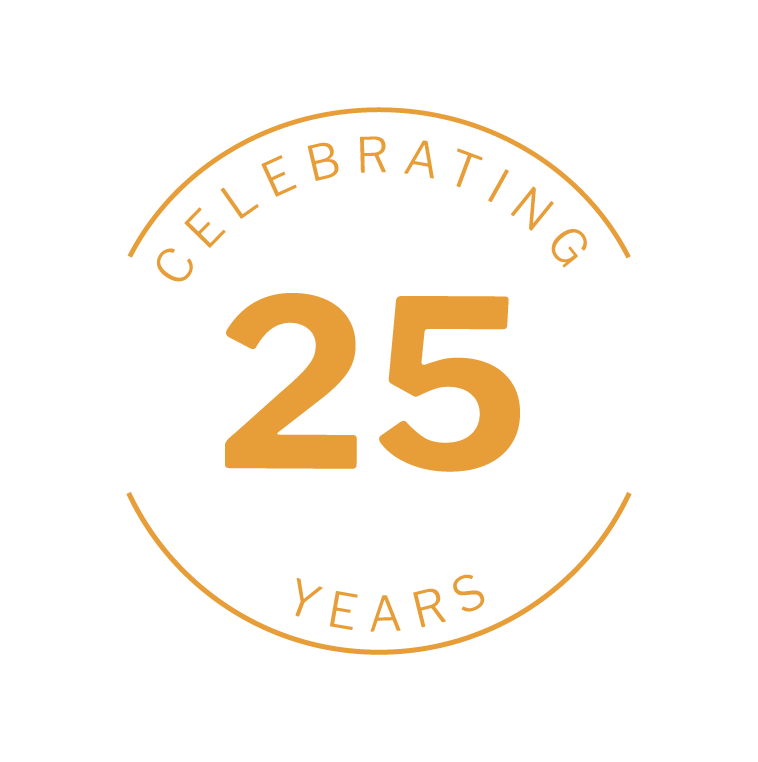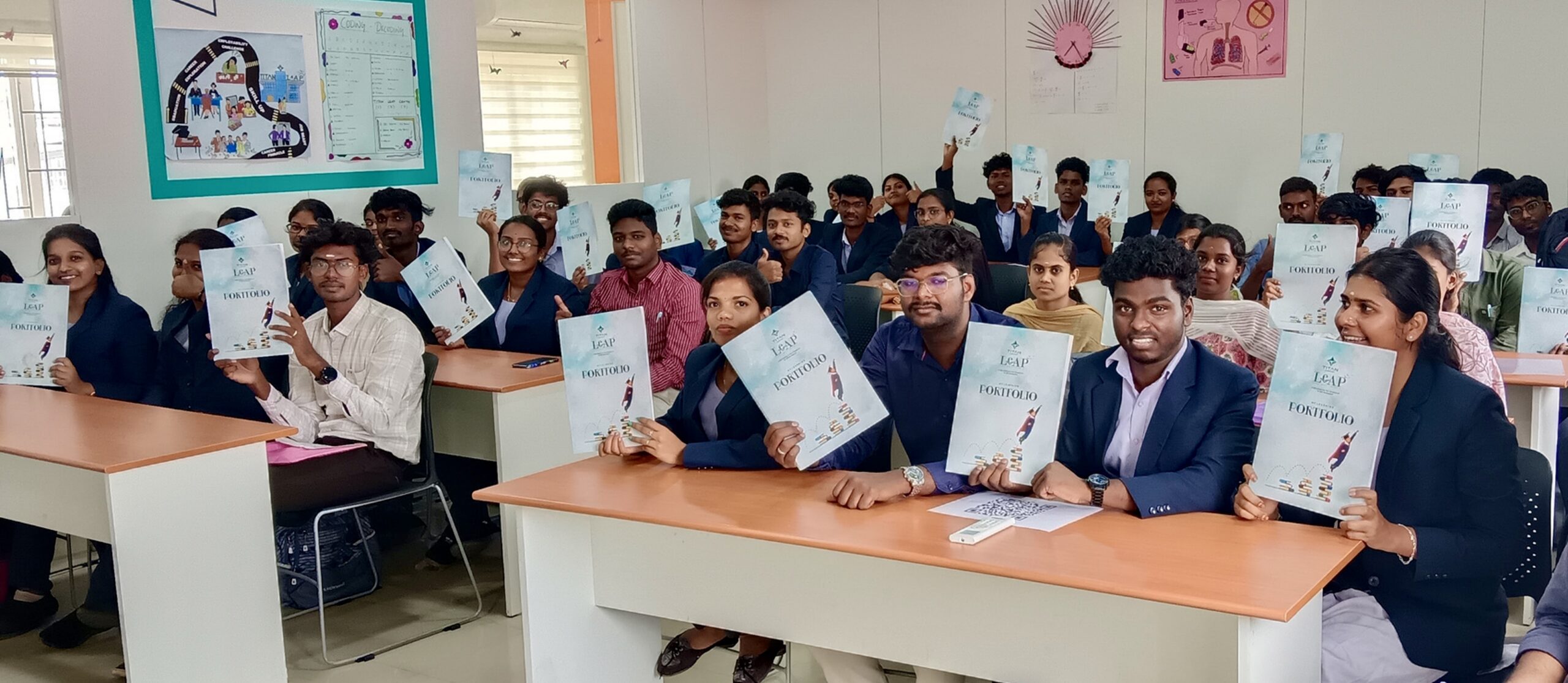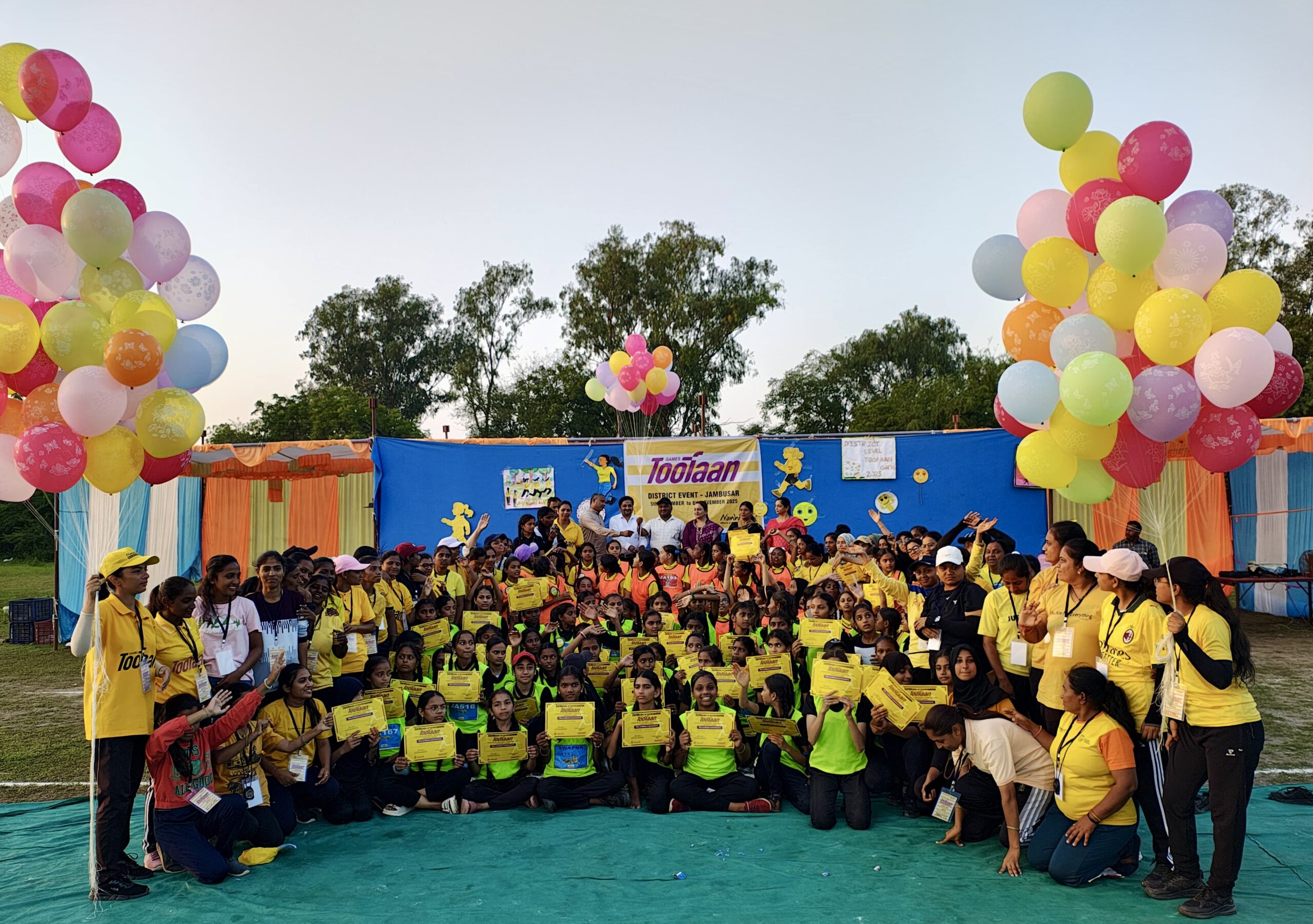India is home to one of the largest populations of young people in the world. This very vast demographic dividend—millions of individuals aged between 18 and 25—holds the potential to shape not just the economy, but the very nature of our society. But potential alone doesn’t fuel progress. To transform the promise of youth into advancement in society, young people will need the right tools. An important question arises: what exactly are these tools? If, hypothetically, an ‘Employability Toolkit’ existed for youth, what critical items would be found inside? Let’s open it up and take a look…
Here’s the hammer, as sometimes you’ve really got to bash out a deadline or break through layers of a creative block or imposter syndrome.
Then comes the trusty screwdriver, which allows you to apply your hard-earned knowledge and expertise with precision to turn complex tasks just the right way.
The wrench? Perfect for loosening up stuck mindsets or rigid thinking, or for reinforcing a shaky, faltering project before it falls apart under pressure.
You’ll need pliers too for gripping tricky situations, tweaking what is available, and occasionally bending things (or people) into alignment to meet a common goal.
And of course, the measuring tape – vital to sizing up problems, setting scope, and measuring your outcomes, but also how far you’ve come.
These are just the basic tools, and today’s world requires that a toolkit be stocked with a few more things.
A mirror for honest self-reflection.
A compass to help navigate uncertainty with conviction.
A magnifying glass to catch the overlooked details and fine print.
And a whiteboard marker—because the best ideas often begin as messy sketches in a room full of curious minds that brainstorm, debate, and find solutions together.
So, all this talk of toolkits is meant to convey an important point: it is not enough that young people only be supported to get a job; it is also important that they prepare for and aspire towards excelling and growing within it and far beyond. At Naandi, we function with this principle as a solid foundation, and through our Job Factory, equip young people with the ability to think independently, to collaborate empathetically and effectively, and to cultivate an attitude whereby one wishes to keep learning long after formal education ends. These are the 21st-century skills that ensure the individuals we train remain relevant, adaptive, and growth-driven in the long haul. In a world with a job-market shifting by the minute thanks to AI, automation, and a redefined global economy, learning how to learn has never been more important.
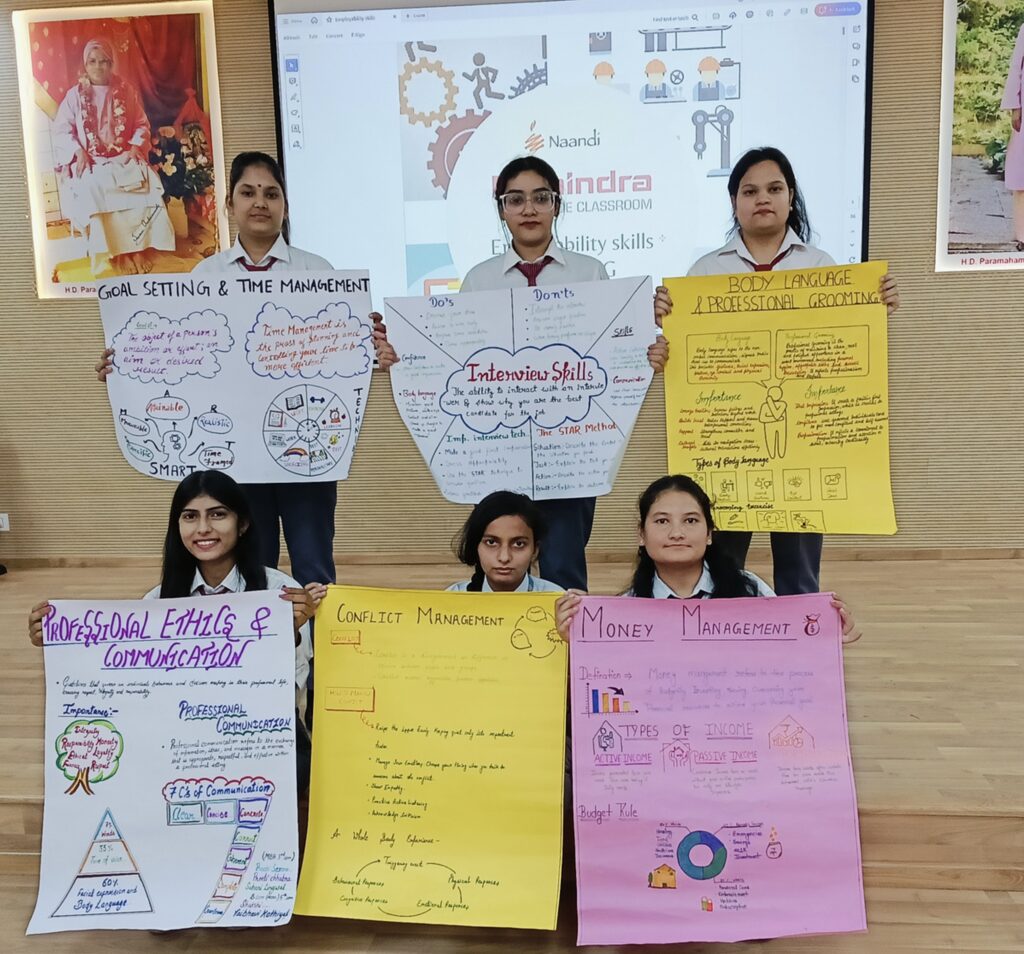
Our Government’s National Education Policy 2020 envisions learners who are reflective, resourceful, and bold enough to step into the unknown. That vision resonates deeply with us. Today, across 21 states, our 21st century employability work brings this policy to life in three ways:
First, we’re building pathways that support women to enter the workforce with agency, confidence, and relevant, adaptable skills. While female labour force participation in India has risen from 23.3% in 2017–18 to 41.7% in 2023–24, women are still missing in many fast-growing corporate sectors and roles of leadership. Our women-first skilling centres in Pune and Chennai were built around an honest assessment of this issue: what’s keeping women out of full-time positions in the formal sector, and what needs to shift to bring them in? We then designed courses aligned with both the demand of the job market and with women’s lived realities:
– Information Technology Enabled Services: Training for careers in customer support, data entry, and business processing outsourcing, with a strong emphasis on interpersonal skills, customer relationship management, and digital communications.
– Data Management: Deep-dive course into Excel and Microsoft’s other tools, and data-handling workflows for roles in administration and analytics.
– Retail & Sales: From store floor to sales teams—thorough training in customer engagement and relationship management, product knowledge, and workplace confidence.
– Accounting & Taxation: Tally, taxing, and financial reporting skills which are essential for supporting entrepreneurial endeavors, independent businesses, or securing placements in financial operation jobs.
– Hospitality & Event Management: Hands on training in guest relationships, reservation systems, and event coordination supplemented with office etiquette and housekeeping supervision.
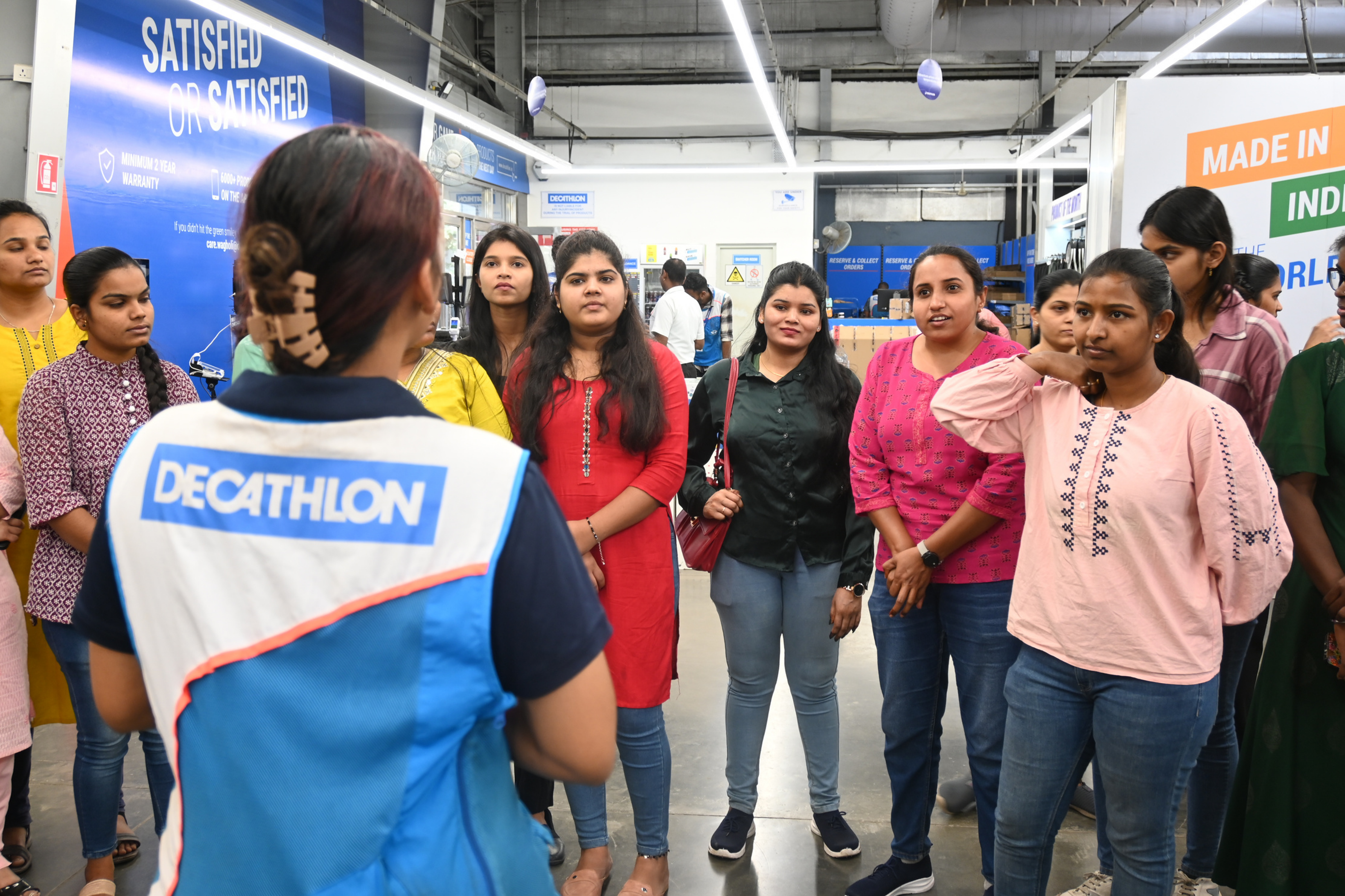
Second, our courses are modular, market-aligned, and designed to be responsive to the dynamic job market. These courses are delivered through a flexible learning model, with training and content being delivered to smaller groups which ensures more effective, even knowledge distribution and greater, more direct support for each student. It also allows student groups to move at a pace that matches their readiness—accelerating through areas they grasp quickly, while spending more time reinforcing concepts that need further work. Students can choose from a range of these skill-building modules, including:
– Tally, IT & GST: An end-to-end understanding of finance and accounting workflows—from automated invoicing and GST compliance to financial reporting and data security. Students complete personal assignments in bookkeeping and real-life tax scenarios.
– Coding & Computational Thinking: Introduces core programming logic, debugging techniques, and automation through real-world coding challenges—building digital problem-solving skills for tech careers.
– Digital Literacy: Teaches workplace-ready tools like Excel for data analysis, Python for automation, Canva for design, and essential digital workflows.
– Medical Coding: A niche course training youth for careers in healthcare administration—focusing on medical coding systems, clinical terminology, and insurance documentation standards.
– New Educator: Prepares individuals to be changemakers in education with interactive pedagogy courses in lesson planning, emotional intelligence, and classroom engagement techniques for kids in private and underprivileged schools.
– Regenerative Agriculture: Hands-on training in implementing the Arakunomics model, which involves using agri-inputs and sustainable practices for chemical-free cultivation and biodiversity enrichment of farms, as well as agri-business planning, value-addition skills, and eco-certification for wider market access.

Third, we’re investing in providing educational experiences that go beyond training on the technical know-how and instead help learners grow into agile thinkers and collaborative doers before they are exposed to formal hiring opportunities.
– Aptitude, English Communication, & Life Skills Workshops: Game-based modules in numerical reasoning, logical thinking, decision-making, conversation building, and public speaking which reinforce a wider use of English vocabulary and a professional workplace etiquette.
- Exposure Visits: Learners visit offices, farms, factories, or event venues to see real work environments, meet teams, and connect abstract skills to lived practice.
– Masterclasses with Professionals: Industry experts—from hospitality, education, agriculture, IT, and creative sectors—offer learners behind-the-scenes knowledge and hands-on advice.
– Alumni Meetups and Parent Engagement: Celebrating role models within the community reinforces positive aspiration and multi-generational belief in learning.
– Lectures and Focus Groups: Enabling young people to articulate their experiences, reflect on social change, and grow into compassionate leaders.
– Book Clubs: Weekly reading sessions across fiction and nonfiction, in English and students’ mothertongues, to build reflection, comprehension, and critical discussion skills—essential for long-term success.
– Job Utsavs: Events that match learners with employers based on skill profiles. These are not just job fairs—they’re celebrations of growth, opportunity, and talent.
In the end, employability is a capacity. A mindset. A muscle that must keep exercising to be strong and useful to daily life within and beyond one’s job. In acknowledging this, Naandi’s Job Factory has a dual focus: to place youth in jobs and, of equal importance, to equip them with the tools—both classic and cutting-edge—to keep building, learning, and leading in a world that’s constantly changing.

